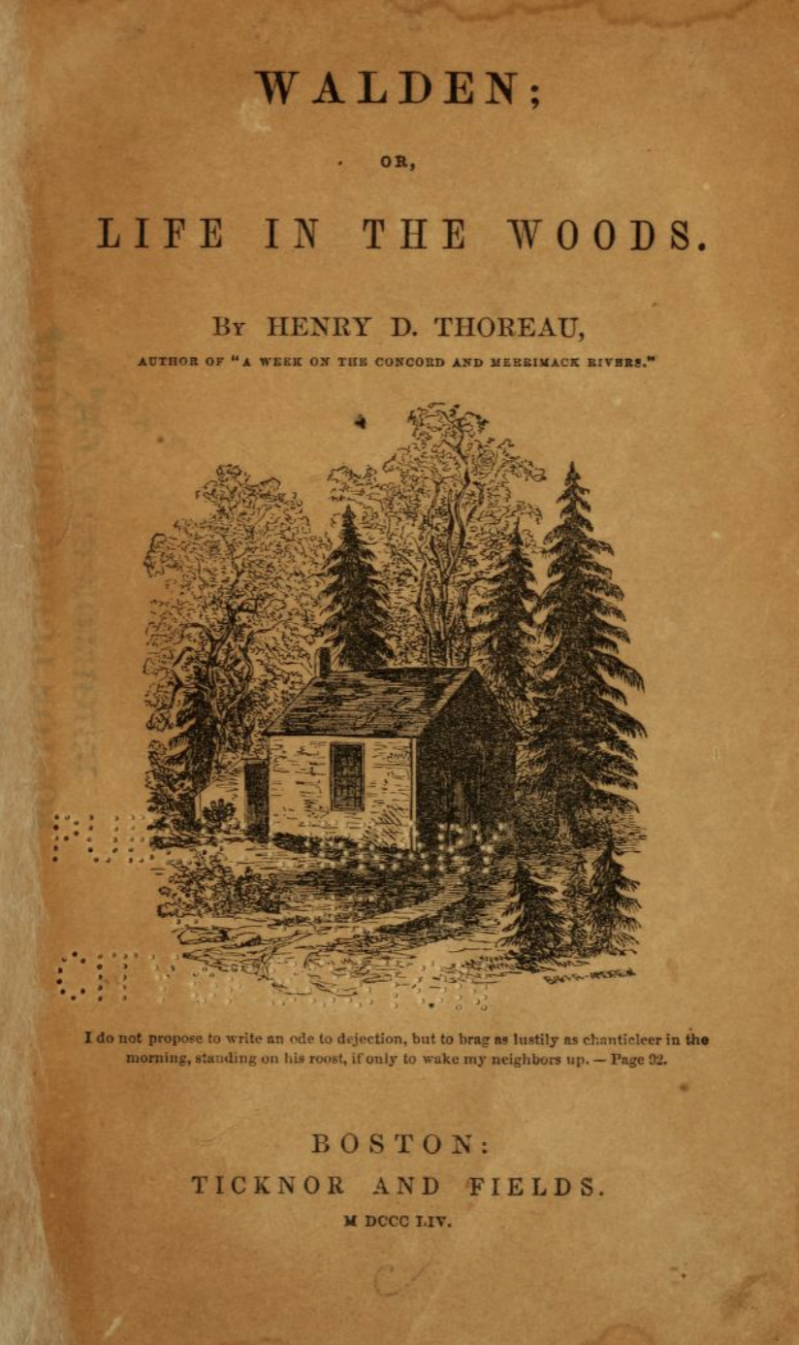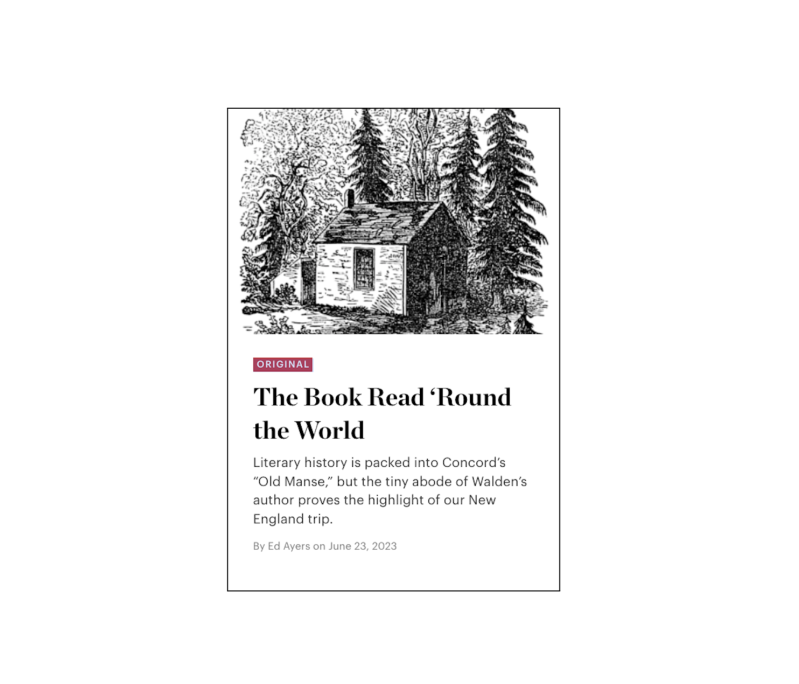This work by New American History is licensed under a Attribution-NonCommercial-ShareAlike 4.0 (CC BY-NC-SA 4.0) International License. Permissions beyond the scope of this license may be available at newamericanhistory.org.
American Visions: Exploring Primary and Secondary Sources
GenAI generated passage from Walden
Read this rewritten passage from Walden, p. 98-11, using generative artificial intelligence technology.
We need to learn how to stay awake, not using machines but by always looking forward to the new day, even when we're asleep. It's amazing how humans can improve their lives through conscious effort. It's great to create beautiful things like paintings and sculptures, but it's even better to make the world around us better. Making each day better is the most important form of art. Every person should make their life worth remembering, even in the small things.
I decided to go to the woods because I wanted to live life more deliberately. I wanted to experience the essential parts of life and learn from them. I didn't want to waste my time on things that didn't really matter. I wanted to live deeply and make the most of every moment. Most people are uncertain about the purpose of life, whether it's to serve God or something else.
Our lives are often too complicated, like ants trying to do too many things. We should keep things simple. Instead of having so many meals and things, we should simplify our lives. Life is full of distractions and details that waste our time. We should simplify, simplify, simplify. Instead of three meals a day, maybe eat only one. Instead of many dishes, have just a few. Our lives are like a big and complex nation with ever-changing borders. We need to live a simple life with a clear purpose.
People think it's important to have things like commerce, ice exports, and fast communication, but we should ask if we really need these things. Instead of improving our lives, we often focus on unimportant things. We need to build railroads and do important work, but we also need to live meaningful lives. If we only focus on improving our lives, who will build the railroads we need? We need to strike a balance between progress and living a good life. We shouldn't let progress overwhelm us; we should make it serve us.
Note: this is an AI-generated version, rewritten in simpler terms from the original passage written by Henry David Thoreau as excerpted from The Internet Archive.
GenAI generated passages from "The Book Heard Round the World," by Ed Ayers, American Journey
Concord, Massachusetts is a charming New England town with churches, old graveyards, cute shops, and big trees. It's a place that takes care of the history of the American Revolution. But there's more to Concord than just the Revolution. It's also a place where great ideas came out during a time called the American Renaissance. One important spot where these stories come together is the "Old Manse," an old house built in 1770. Ralph Waldo Emerson, a famous writer, lived there and wrote a book called Nature that started a movement called Transcendentalism.
Emerson's house became popular because people wanted to learn about religion, philosophy, and how to live a better life. His friend Thoreau also gave speeches and helped out at the house. At the same time, another house called the Old Manse had new people living in it. Nathaniel and Sophia Hawthorne were starting a family there. Hawthorne wrote stories that were different from Emerson's hopeful philosophy. Instead, his stories were about feeling guilty and being in danger.
Thoreau, who was friends with both Emerson and Hawthorne, asked Emerson if he could build a small house by Walden Pond. Thoreau wanted to live there for two years and experience life fully. Many people, including us, wanted to visit Walden Pond. It was a beautiful place with clear water and a peaceful atmosphere. We walked around the pond and saw the rebuilt home where Thoreau lived. It was smaller than we expected, but it looked nice inside.
When comparing Thoreau's small house to our own, we realized that his was much smaller. But visiting Walden Pond exceeded our expectations. The ranger at the visitor center told us interesting facts about the pond and its history. Thoreau would have been happy to see how much his book influenced people all over the world. The land around the pond has grown into a mature forest, showing how nature can thrive even in worn-out soil and cut-over woods. Overall, our visit to Concord and Walden Pond was a memorable experience that taught us about history, literature, and the beauty of nature.
Note: this is an AI-generated version, rewritten in simpler terms from the original passage written by Ed Ayers in American Journey.



